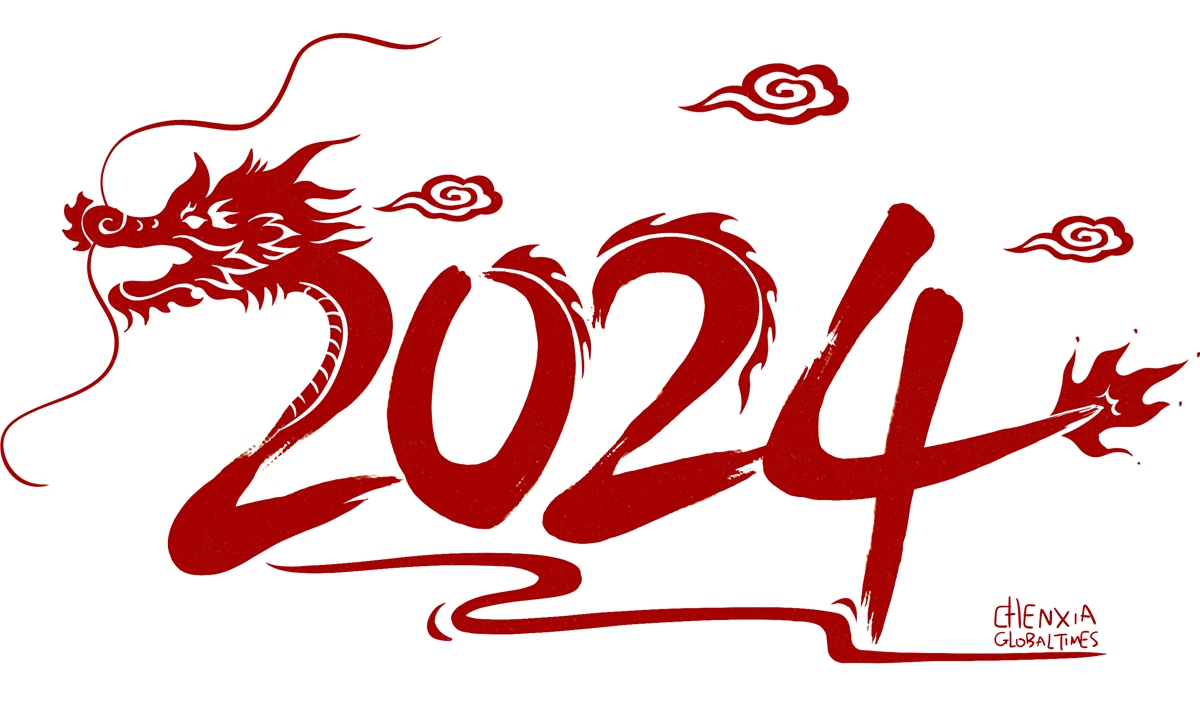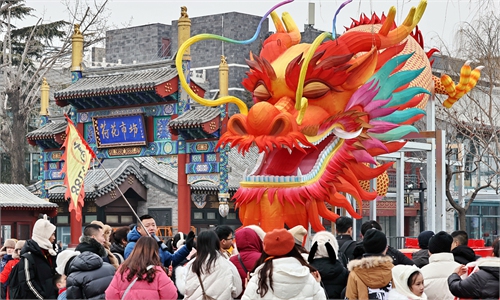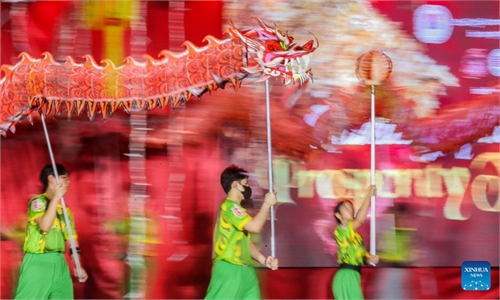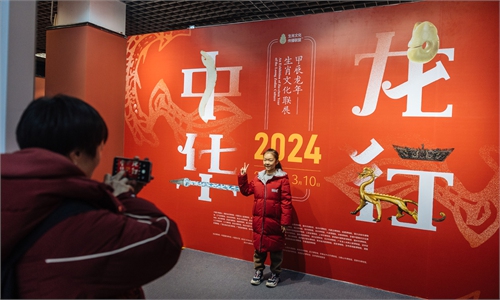Why Western perception of China should be reshaped

Illustration: Chen Xia/GT
According to the Chinese lunar calendar, this year marks the Year of the Dragon. Millions of Chinese people will return home to be reunited with their families and celebrate the Spring Festival.The dragon plays a significant role in Chinese culture and is often used internationally as a symbol of China. According to current archaeological findings, the earliest depictions of dragons have been discovered in Inner Mongolia in the north and the Liangzhu culture sites in the south of China, dating back to 5,000 to 8,000 years ago.
Many Western books, magazines and films that depict China often show the dragon in a positive light. However, compared to another common symbol of China, giant panda, the dragon also conveys negative connotations. This is primarily due to the different perceptions of dragons in the West.
In Chinese mythology, the dragon is seen as a divine being capable of summoning wind and rain and wielding magical and formidable powers in an agricultural society. It has a natural connection to China's political system, which originated from water control.
The dragon also symbolizes power, wisdom, wealth and nobility, closely associated with the imperial authority in China. This makes it an easy symbol to align with the authoritarian governments perceived in the West.
The Western concept of the dragon significantly differs from its counterpart in Chinese culture. In many Western legends and literary works, dragons are portrayed as evil beings, enemies that heroes must defeat.
From the late 19th to the early 20th century, fueled by a fear of East Asia and by racist theories in the West, the image of the Chinese dragon was used to symbolize the so-called Eastern threat, aligning with the then-popular theme of the "Yellow Peril."
Today, as the West faces a rapidly rising China, the imagery and implications of the dragon are being invoked again, fitting into the narrative of the so-called China threat theory.
This misinterpretation and distortion of the symbolic meaning of the Chinese dragon reflect the West's discomfort and anxiety over an ancient Eastern power becoming a modern industrialized nation, standing alongside the West.
This perception and attitude have been shaped and transmitted through cultural symbols, historical interactions, political-economic development and media dissemination.
Some research suggests that the dragon's symbolism in Chinese culture is akin to the Seraphim, the highest rank in Christian angelology. Hence, there was a suggestion to translate the Chinese "dragon" as "Chinese Seraphim." However, many scholars believe this term does not accurately represent dragon in Chinese culture.
Western missionaries' earliest translation of the dragon during the Qing Dynasty (1644-1912) was not accepted by Chinese Americans. Therefore, Chinese Americans began translating "dragon" as "loong."
However, changing to "loong" might not necessarily alter the Western perspective on China formed within its knowledge system. Fundamentally, the Western perception of China, especially modern China, remains confined within a worldview formed over the past centuries, deeply embedded in the subconscious of Western civilization, which cannot easily be changed.
The process of reshaping the image of dragon will continue as China engages with the world and embraces the world. It's a long-term, challenging process of adjustment. Change is already happening. Now, the world as a whole, including the West, has a need to understand the dragon of China. Even if some still view China's rise as a threat of the "dragon," they must also enter into a new global situation of coexistence with China whether they like it or not, and finally, they will realize, from China's development, that "loong" is not "dragon."
The author is a senior editor with People's Daily, and currently a senior fellow with the Chongyang Institute for Financial Studies at Renmin University of China. dinggang@globaltimes.com.cn. Follow him on X @dinggangchina




